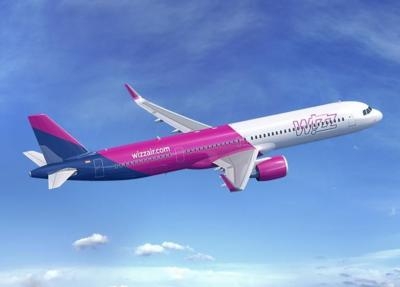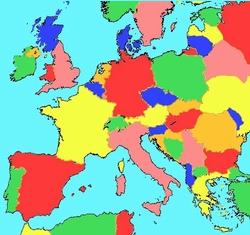Of Low-Altitude, High-Risk, and Big Labdák
In February 2022, at the onset of the Russo-Ukrainian conflict, Government officials in the Ukrainian capital city of Kiev closed the nation’s airspace, citing the safety risk posed by missile defenses and various and sundry warfighting gadgets collectively destructive to aircraft in flight.

The European Union Aviation Safety Agency (EASA), too, warned of the perils facing commercial aircraft overflying Ukraine or its borders with Russia, Belarus, Poland, Hungary, Romania, and Moldova.
"There is a risk of both intentional targeting and misidentification of civil aircraft [over and in the vicinity of Ukraine]” EASA trumpeted in an E.U.-wide statement. “The presence and possible use of a wide range of ground and airborne warfare systems poses a high risk for civil flights operating at all altitudes and flight levels."
Shortly after invading Ukraine, Russia further disrupted the global aviation industry by brazenly seizing hundreds of commercial jets owned by U.S. and European leasing companies.
Cognizant of both the dim view the international community takes on invasions and the swiftness with which the West would levy economic, trade, and technical sanctions, the Kremlin authorized Russian airlines to add aircraft leased from foreign companies to the Russian aircraft registry. The move sanctioned history’s grandest aircraft theft and saw Russian air-carriers abscond with four-hundred commercial aircraft worth an estimated $12.4-billion.
Four of the pilfered aircraft—a quartet of Airbus A320s—belong to Budapest-based Wizz Air, a Hungarian ultra-low-cost airline that serves numerous cities throughout Europe, North Africa, the Middle East, and South Asia. Though not a flag carrier, Wizz Air operates the largest fleet of commercial aircraft in Hungary, and turns a tidy profit doing so. In March 2022, amid Russia’s invasion of Ukraine, Wizz Air provided 100,000 free airline tickets to refugees for short-distance flights from Poland, Slovakia, Hungary and Romania.

The Wizz Air brass, after the fashion of their Magyar Chieftains forebears, doesn’t cotton to the notion of kowtowing to foreign powers—even regional, nuclear superpowers with marked propensities for military aggression and aircraft larceny. Ergo, in September 2022, in an operation predicted upon daring, chutzpah, stealth, low-altitude non-radar flight, and no small amount of luck, a Wizz Air team crept into Ukraine and stole-back one of the purloined Airbuses—flying the jet out of the war-torn nation and landing it in the southern Polish city of Katowice.
Online flight-tracking data indicated the A320 departed Lviv in western Ukraine and proceeded northwest to Katowice—a trip of 197-nautical-miles. Upon arriving in Polish airspace, the Airbus activated its transponder and was radar identified at 10,000-feet—a preposterously low enroute altitude for a big ol' jet airliner, were it not being surreptitiously repatriated.
A Wizz Air spokesperson said of the incident: "Wizz Air confirms that, following an in-depth risk assessment and thorough preparation, its one aircraft based in Lviv departed from Danylo Halytskyi International Airport and successfully landed in Katowice on 13 Sep 2022." No mention was made of the three Wizz Air jets remaining in Ukraine or the airline’s plans to liberate such.
 Classic Aero-TV: VerdeGo Debuts VH-3 Hybrid-Electric Powerplant
Classic Aero-TV: VerdeGo Debuts VH-3 Hybrid-Electric Powerplant NTSB Prelim: Grumman American Avn. Corp. AA-5B
NTSB Prelim: Grumman American Avn. Corp. AA-5B ANN's Daily Aero-Linx (12.02.25)
ANN's Daily Aero-Linx (12.02.25) Aero-News: Quote of the Day (12.02.25)
Aero-News: Quote of the Day (12.02.25) Aero-News: Quote of the Day (12.03.25)
Aero-News: Quote of the Day (12.03.25)




